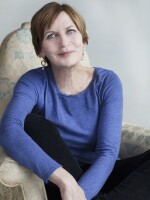The weirdest -- and maybe even the most revealing -- episode in Alan Brinkley's teeming biography of Henry Luce occurred in 1960 when Luce -- a publishing potentate who reigned over an empire that included Time, Sports Illustrated, Fortune and Life magazines -- experimented with LSD. Luce's second wife, the playwright, congresswoman and loose cannon, Clare Booth Luce, had already dabbled with the hallucinogen under a psychiatrist's supervision. Clare later claimed she had cajoled her husband into trying LSD to provide him with the same "serenity" the drug had given her and, thus, save their troubled marriage.
Whatever the reasons, Luce took a dose and then, according to the psychiatrist's diary, sat down at his desk and began calmly reading Lionel Trilling's biography of Matthew Arnold. Even LSD couldn't whisk Henry Luce off on a magic carpet ride! No matter how much he may have yearned to attain freaky visions, Luce was always tethered to late Victorian ideas about duty and ethical culture.
In The Publisher, Alan Brinkley has written a largely sympathetic and terrifically engrossing biography of Luce, the tycoon who -- through his magazines and newsreels -- helped change the way Americans in the 20th century got their news. Reading Luce's biography these days, when the future of print journalism is such a big question mark, makes for both a sentimental and unsettling experience. Sure, it's easy to be nostalgic about an era when two young whippersnappers -- Luce and his schoolmate Brit Hadden -- could dream up a newsmagazine, call it Time, and, after its launch in 1923, watch it become a success in a few scant years. It's also easy to moon over the dazzling array of writers and photographers that Luce corralled for his publications: Archibald MacLeish, Margaret Bourke-White, Dwight MacDonald, James Agee.
But if you're of an age to even dimly remember copies of Time and Life blanketing family coffee tables and school libraries across the land, it's also disturbing to realize what dominion Luce's opinions had. Luce loathed Franklin Roosevelt and the New Deal and prided himself on being a fierce Cold Warrior, particularly in regard to Communist China. Brinkley concedes that Luce's conservative politics unquestionably shaped his outlets' coverage of the news. But Brinkley also says that Luce's most crucial influence -- during what Luce himself memorably called "The American Century" -- was his magazines' boosterish promotion of an upbeat, abundant American way of life. His magazines and newsreels were charged with spreading the gospel of democracy to the rest of the world.
As in so many biographies of the famous and powerful, it's the first half of Brinkley's biography -- the chapters devoted to Luce's youth and empire-building -- that are the most fascinating. Luce was born in 1898 in China to missionary parents. Dispatched at age 10 to boarding school, which he described in letters home to his parents as a "hanging torture," Luce eventually landed at Yale as a scholarship student. There, he and his friend Hadden cooked up the idea for a digest that would provide "news for the busy." With critical gusto, Brinkley dissects the success of Time and Luce's other ventures, giving special attention to the idiosyncratic writing style of Time, which was modeled on the lively and lofty language of The Iliad. Where Homer wrote of a "wine-dark sea," Time concocted similar compound adjectives to describe people in the news; for instance, "flabby-chinned" and "snaggle-toothed."
Brinkley also attempts to dissect the more firmly closed book of Luce's personality. He was, by all accounts, an odd duck. Socially awkward yet frantically ambitious -- in a way, I think, reminiscent of Richard Nixon -- Luce compensated for his insecurities by assertions of ego. He once said, for instance, that he was smarter than Einstein because he, Luce, was a generalist while Einstein was only a "specialist." Throughout his life, Luce was burdened by a charge, inherited from his missionary parents, that everything he did had to be serious, had to have a higher purpose. Brinkley observes that after Luce's death in 1967 his empire began to dwindle, but one enormous success was the advent of People magazine in 1974. What would Luce -- the stolid man who read about Matthew Arnold while tripping -- think about all those pages wasted on the Gosselins and Brangelina?
Copyright 2023 Fresh Air. To see more, visit Fresh Air.




